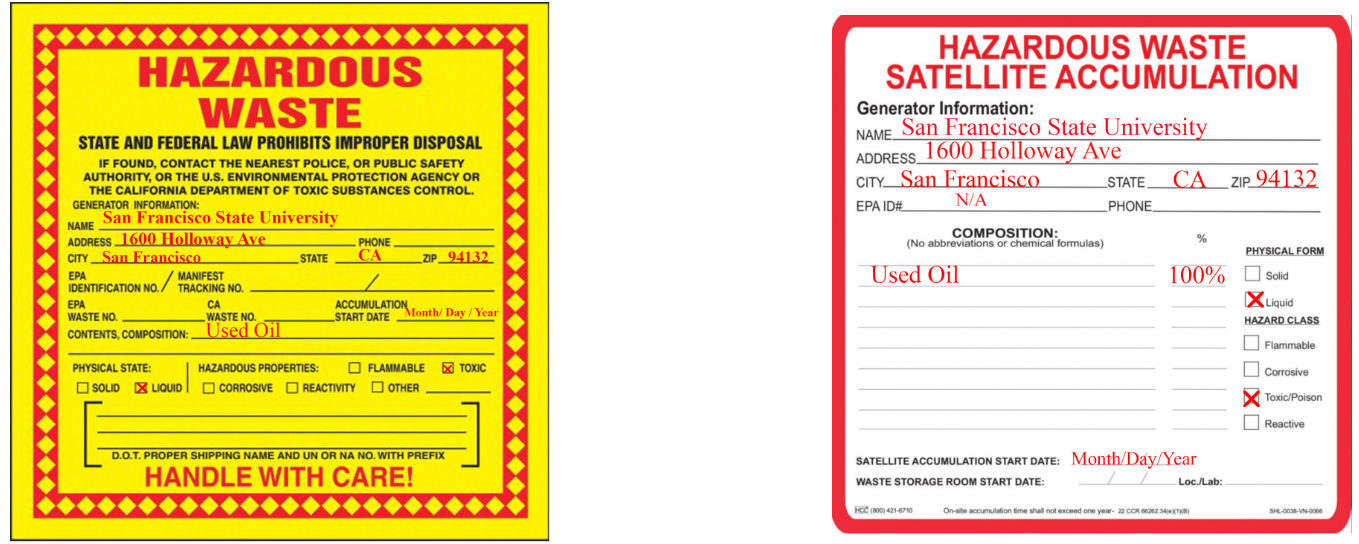Ignitable waste refers to materials that can easily catch fire under standard temperature and pressure. These materials pose fire hazards and must be managed with strict attention to storage and disposal practices to prevent incidents.
Characteristics of Ignitable Waste:
• Liquids with a flash point below 140°F (60°C).
• Non-liquids capable of causing fire through friction, absorption of moisture, or
spontaneous chemical change.
• Compressed gases that can ignite.
• Oxidizers that intensify combustion
Ignitable Waste Information
Examples of municipal waste at SFSU include:
- Ethanol, acetone, methanol, and other laboratory solvents.
- Paint thinners, varnishes, and oil-based paints.
- Used solvent wipes or rags.
- Aerosol cans containing flammable propellants.
- Laboratory mixtures containing ignitable components
Environmental Health & Safety: Dipak Janda (Dk)
Email: Dipakjanda@sfsu.edu
Telephone: (415)-542-8046

Labels must include:
- “Hazardous Waste – Ignitable” or “Flammable.”
- Full chemical name(s) and hazard identification (e.g., flammable, volatile).
- Date of accumulation and applicable safety notes.
- Up to 90 days in Satellite Accumulation Areas (SAAs), in accordance with regulatory standards.
- Accumulation containers must be kept closed except when adding waste and inspected weekly.
Who Removes the Waste:
Trained laboratory personnel or EH&S staff transfer ignitable waste.
Where It Is Taken:
Waste is taken to the centralized Hazardous Waste Storage Facility, where it is kept in designated flammable storage cabinets or segregated storage rooms with fire suppression system
- Ignitable waste is collected on a monthly basis, or sooner if quantities pose a fire risk.
- Emergency pickup can be arranged through EH&S if safety concerns arise
Collected by a licensed hazardous waste hauler authorized to transport ignitable waste.
Disposal methods may include:
- Fuel blending for energy recovery.
- Controlled incineration in facilities with air pollution controls.
- Reclamation or solvent recycling if feasible.
Contact Information
For further information about the Ignitable Waste Management Program at SFSU or how you can get involved, please contact:
Environmental Compliance Specialist
Dipak Janda (Dk)
- Phone: (415) 542-8046
- Email: dipakjanda@sfsu.edu